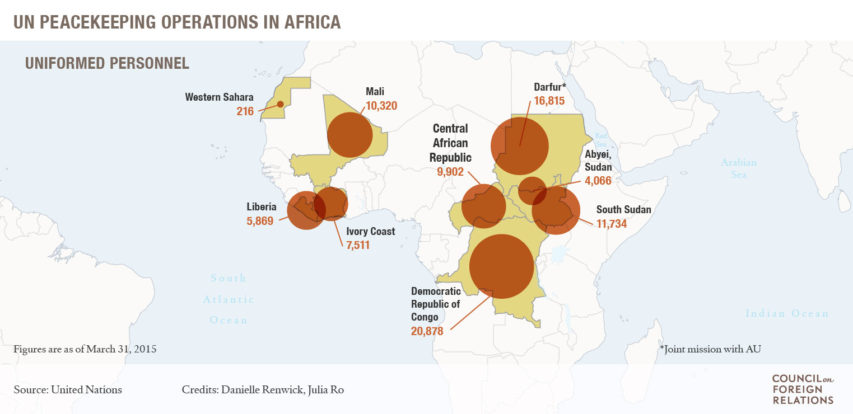David Harsanyi responds to a silly post at Vox by Max Fisher:
This is the one thing that both Hamas and Israel seem to share: a willingness to adopt military tactics that will put Palestinian civilians at direct risk and that contribute, however unintentionally, to the deaths of Palestinian civilians. Partisans in the Israel-Palestine conflict want to make that an argument over which “side” has greater moral culpability in the continued killings of Palestinian civilians. And there is validity to asking whether Hamas should so ensconce itself among civilians in a way that will invite attacks, just as there is validity to asking why Israel seems to show so little restraint in dropping bombs over Gaza neighborhoods. But even that argument over moral superiority ultimately treats those dying Palestinian families as pawns in the conflict, tokens to be counted for or against, their humanity and suffering so easily disregarded.
A “partisan” writing about a conflict as if he we an honest broker is distracting, but read it again. You might note that one of the institutions he’s talking about is the governing authority of the Palestinian people in Gaza, which, applying even the most basic standards of decency, should task itself with safeguarding the lives of civilians. Instead, it makes martyrs out of children and relies on the compassion of Israelis to protect its weapons. This is a tragedy, of course, but Israel does have to bomb caches of rockets hidden by “militants” in Mosques, schools, and hospitals. Since Hamas’ terrorist complex is deeply embedded in Gaza’s civilian infrastructure there is really no other way. And that only tells us that one of the two organizations mentioned by Fisher has purposely decided to use Palestinian as pawns and put civilians in harm’s way.
It is also preposterous to claim that Israel is showing “little restraint in dropping bombs over Gaza neighborhoods.” Actually, Israel is far more concerned with the wellbeing of Palestinians civilians than Hamas. This week, 13 Hamas fighters used a tunnel into Israel and attempted to murder 150 civilians in Kibbutz Sufa, with Kalashnikovs and anti-tank weapons. On the same day, Israel issued early warnings before attacking Hamas targets – as it often has throughout this conflict in an effort to avoid needless civilian deaths Hamas is hoping for. It was Israel that agreed to a five-hour cease-fire so that UN aid could flow into Gaza last week. It is Israel that sends hundreds of thousands of tons of food to Gaza every year, millions of articles of clothing and medical aid. That’s more than restraint.
[…]
I often hear people claim that the Israel-Palestinian situation is complex. It isn’t. It’s difficult to solve, indeed, but it’s not complex. One side refuses to engage in any serious efforts to make peace with modernity and with Jews. So, for those like Andrew Sullivan and some of the folks at The American Conservative, who argue that Israel is the one drifting from Western ideals, I think Douglas Murray has the best retort:
A gap may well be emerging. But not because Israel has drifted away from the West. Rather because today in much of the West, as we bask in the afterglow of our achievements — eager to enjoy our rights, but unwilling to defend them — it is the West that is, slowly but surely, drifting away from itself.
Update: Charles Krauthammer says this is a rare moment of moral clarity.
Israel accepts an Egyptian-proposed Gaza ceasefire; Hamas keeps firing. Hamas deliberately aims rockets at civilians; Israel painstakingly tries to avoid them, actually telephoning civilians in the area and dropping warning charges, so-called roof knocking.
“Here’s the difference between us,” explains the Israeli prime minister. “We’re using missile defense to protect our civilians and they’re using their civilians to protect their missiles.”
Rarely does international politics present a moment of such moral clarity. Yet we routinely hear this Israel–Gaza fighting described as a morally equivalent “cycle of violence.” This is absurd. What possible interest can Israel have in cross-border fighting? Everyone knows Hamas set off this mini-war. And everyone knows Hamas’s proudly self-declared raison d’être: the eradication of Israel and its Jews.
[…]
Why? The rockets can’t even inflict serious damage, being almost uniformly intercepted by Israel’s Iron Dome anti-missile system. Even West Bank leader Mahmoud Abbas has asked: “What are you trying to achieve by sending rockets?”
It makes no sense. Unless you understand, as a Washington Post editorial explained, that the whole point is to draw Israeli counterfire.
This produces dead Palestinians for international television. Which is why Hamas perversely urges its own people not to seek safety when Israel drops leaflets warning of an imminent attack.
To deliberately wage war so that your own people can be telegenically killed is indeed moral and tactical insanity. But it rests on a very rational premise: Given the Orwellian state of the world’s treatment of Israel (see: the U.N.’s grotesque Human Rights Council), fueled by a mix of classic anti-Semitism, near-total historical ignorance, and reflexive sympathy for the ostensible Third World underdog, these eruptions featuring Palestinian casualties ultimately undermine support for Israel’s legitimacy and right to self-defense.




